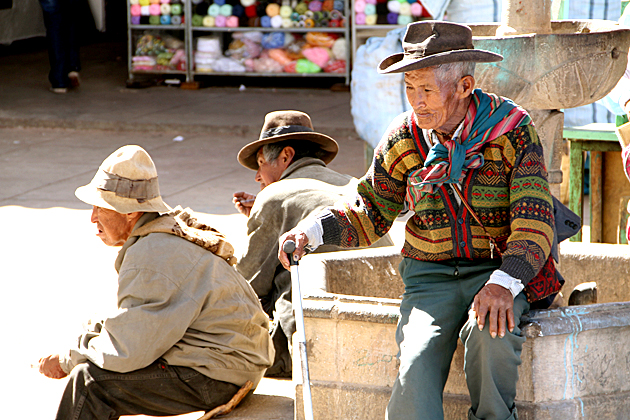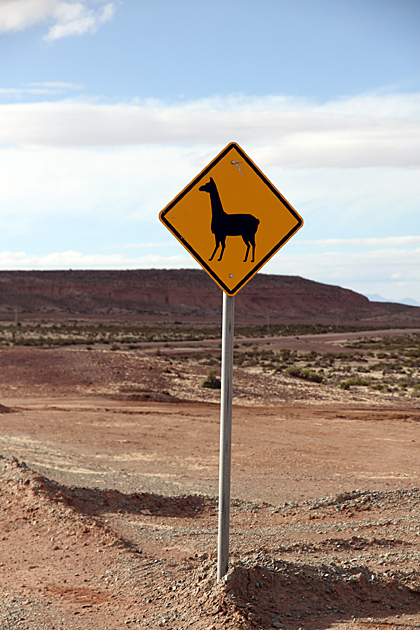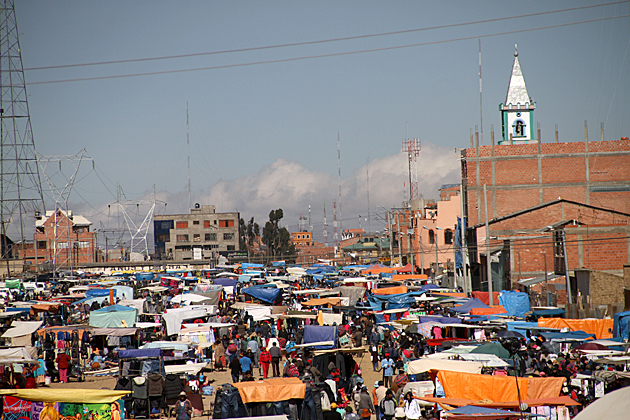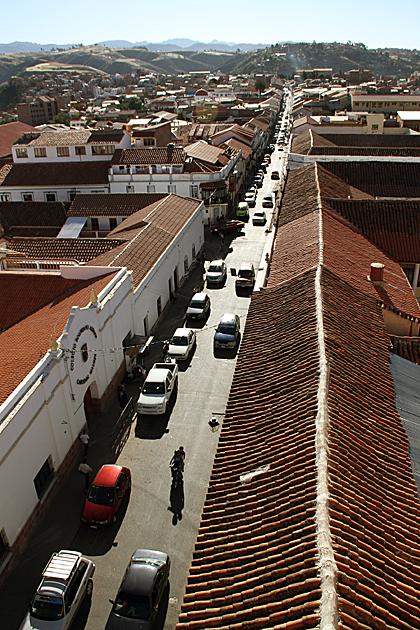Quechua 101
I was sitting on a bench in Sucre’s Plaza 25 de Mayo, waiting to meet Jürgen for lunch, and fell into conversation with the old man seated next to me. Having identified me as a foreigner, he asked why my hair isn’t blond. Apparently, this guy hadn’t met all that many gringos…

The man had lost the use of his hands due to an an undefined “accident”. Since he was from a village near Potosí, I imagined mining and/or dynamite was involved, but before I could press for details, he had launched into a diatribe about the trials of life. He and his wife had been in Sucre for 30 days, trying to sell their vegetables. They had grown up illiterate, speaking Quechua in a village without a proper school, and only learned Spanish as adults.
I asked him to teach me a little Quechua, and he was happy to oblige. Arí is “yes”. Manan, “no”. Alright, that’s not so hard! But then: Yusulpayki is “thanks”. Allillanchu is “How are you?” My head was starting to hurt after just four words, and I was relieved when Jürgen arrived to interrupt our impromptu lesson.
Quechua is spoken by approximately eight million people in and around the Andes. It was the language of the Incas, who spread its use in order to homogenize their vast kingdom, and today is the primary language of over two million Bolivians, about 20% of the population. To be precise, “Quechua” refers to a family of languages. In Bolivia, the form spoken is Southern Quechua.
Quechua is an agglutinative language, which means that phrases are built by piling prefixes and suffixes onto a root word. Here’s an example, from andes.org:
| Wasi | House |
| Wasii | My House |
| Wasiita | To My House |
| Wasiikunata | To My Houses |
A language like that is going to be nearly impossible for a Westerner to master. There can’t be many non-native speakers who can throw together a phrase like Kuyanakusqanchikmantapacha… although I’d love to be able to do so. That word just looks poetic, doesn’t it? The translation is, “Since the moment we fell in love”.
Some Quechua has entered the English language. “Condor”, “llama”, “guano” and “puma” all have their roots in the Andes. So, I’ve already got some words down pat. My plan was to learn the basic phrases during our months here, but after seeing the initial grammar lessons, I’m reconsidering. I think “please” and “thank you” will suit my needs just fine.




Seriously, Mike. Why don’t you have blond hair? What an endearing exchange. What a cool language.
The last week, in two differents days of thew week, travelling in the bus I heard two women, and then two men, talking in guarani or quechua i don’t know. I was so like “wow” i didn’t get a word of their talking.. I’d like to learn some aboriginal language some day..
wow! didn’t know quechua was that dificult! But it kinda makes me want to learn a bit more..
Pingback: Bolivia Index | For 91 Days in Bolivia – Travel Blog